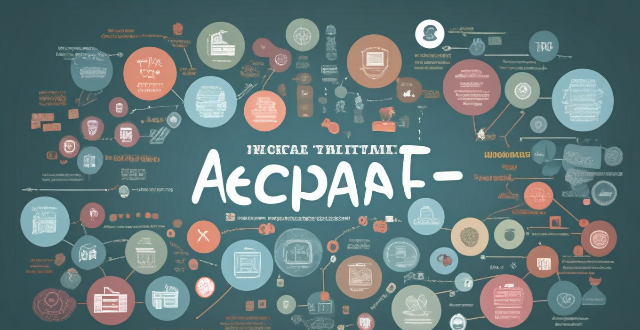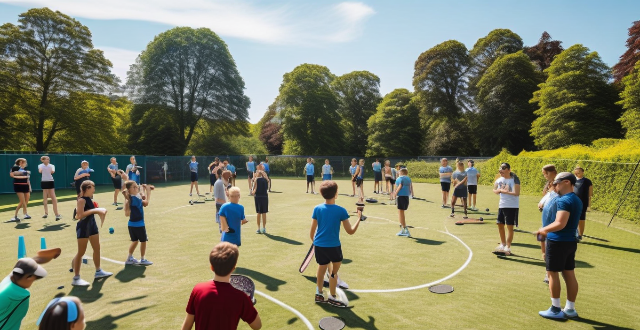Cognitive Preschool

At what age should children start attending preschool ?
The appropriate age to start preschool varies depending on the individual child and their readiness for the experience. Most experts agree that three to four years old is an ideal age range for starting preschool. However, it's essential to consider each child's unique circumstances and needs before making a decision. Early education plays a crucial role in shaping a child's cognitive, social, and emotional development. By enrolling children in preschool, parents can help them develop essential skills such as socialization, language development, cognitive growth, and emotional intelligence. Before deciding when to start your child in preschool, consider factors such as the child's maturity level, developmental milestones, family situation, financial considerations, and quality of program.

How important is socialization in preschool ?
Socialization in preschool is crucial for children's development, helping them develop social skills, emotional intelligence, cognitive abilities, language proficiency, and confidence. It involves learning to interact with others, form relationships, and understand emotions. Benefits include sharing, cooperation, empathy, communication, emotional awareness, regulation, perspective taking, problem-solving, conversation skills, vocabulary expansion, self-discovery, and positive feedback. Prioritizing socialization in preschool programs sets children up for success in school and beyond.

What are the benefits of preschool education ?
Preschool education is crucial for children's future academic success and overall development, offering benefits in social development, cognitive growth, early literacy and math skills, fine and gross motor skills, self-help abilities, school readiness, and parental involvement. It helps children develop interpersonal skills, emotional intelligence, language skills, problem-solving abilities, reading readiness, math concepts, hand-eye coordination, physical fitness, independence, life skills, routine adaptation, classroom etiquette, family partnerships, and parent education. Preschool prepares children for elementary school by nurturing their social, emotional, cognitive, physical, and self-help skills in a stimulating and supportive environment.

How does preschool education prepare children for kindergarten and beyond ?
Preschool education is crucial in preparing children for kindergarten and beyond. It helps them develop essential skills such as socialization, language development, cognitive development, emotional development, fine motor skills, and gross motor skills. These skills are crucial for success in kindergarten and beyond, where children will be expected to work and play with others, read, write, and communicate effectively, navigate complex social situations, form healthy relationships, and participate in physical activities. By attending preschool, children gain a strong foundation for future learning and success in all areas of life.

What are the different types of preschool programs available ?
Preschool programs are designed to prepare young children for kindergarten and beyond. There are several types of preschool programs available, each with its own unique approach and focus. The most common types of preschool programs include Montessori, Waldorf, Reggio Emilia, High Scope, Play-Based, Head Start, and Co-op/Parent Participation. Each program has its own key features and benefits. When choosing a preschool program for your child, it's essential to consider your family's needs, values, and preferences to find the best fit for your little one's early education journey.

Can preschool education help close the achievement gap ?
Preschool education can help close the achievement gap by providing access to high-quality programs, supporting language development, promoting social and emotional growth, and addressing disparities in early childhood experiences.

How can parents support their child's learning in preschool ?
Parents can support their child's preschool learning by reading with them, encouraging curiosity and exploration, fostering socialization skills, and establishing routines and structure. Reading enhances language development and cognitive abilities, while also fostering emotional bonding. Encouraging curiosity through activities like nature walks and science experiments helps in cognitive and emotional development. Fostering socialization skills is crucial for your child's interaction with peers and adults. Establishing routines and structure promotes self-discipline, reduces anxiety, and enhances learning.

What role do teachers play in preschool education ?
Teachers in preschool education play a pivotal role in laying the foundation for children's lifelong learning and development. They are responsible for guiding learners, building foundational skills, encouraging creativity and imagination, promoting physical health and wellness, supporting emotional development, facilitating socialization, and partnering with families. Teachers provide emotional support, foster curiosity, focus on social and communication skills, introduce cognitive concepts, engage children in creative activities, ensure physical activity and healthy habits, contribute to emotional well-being, help children learn how to be part of a community, and work closely with families. Their impact extends beyond the classroom into the formation of well-rounded individuals ready to face future challenges.

What are the key elements of a quality preschool program ?
**Key Elements of a Quality Preschool Program** A high-quality preschool program focuses on the overall development of children, incorporating various elements that support their growth. These include: 1. **Curriculum Design**: - Developmentally appropriate practices. - Integrated learning across domains. - Play-based learning activities. 2. **Qualified Educators**: - Certified teachers with early childhood education credentials. - Continuous professional development opportunities. 3. **Safe and Supportive Environment**: - Physical safety measures. - Emotional support from educators. 4. **Parent Involvement and Partnership**: - Open communication channels. - Opportunities for parental participation. 5. **Health and Nutrition**: - Health policies and hygiene practices. - Nutritious meals and snacks. 6. **Assessment and Evaluation**: - Ongoing observations by teachers. - Developmental screenings for children. 7. **Diversity and Inclusion**: - Culturally responsive teaching methods. - An inclusive environment for all children. 8. **Class Size and Adult-to-Child Ratio**: - Small class sizes. - Adequate supervision ratios. 9. **Curriculum Flexibility**: - Adaptable curriculum to meet changing needs. - Integration of family and community resources. 10. **Active Learning**: - Hands-on experiences. - Outdoor play opportunities. By addressing these key elements, preschool programs can provide a comprehensive and enriching experience for young children, fostering their social, emotional, cognitive, and physical development.

How do I choose the right preschool for my child ?
Choosing a preschool involves considering factors like philosophy, teacher qualifications, curriculum, and communication. It's important to visit potential schools and talk to other parents before deciding which one is best for your child.

How does exercise improve cognitive function ?
Exercise plays a crucial role in enhancing cognitive function, including memory, attention, and problem-solving skills. It promotes brain plasticity, increases blood flow and oxygenation, reduces inflammation, and improves sleep quality. Incorporating exercise into your routine can be done through various activities such as running, swimming, or yoga. Start small and gradually increase intensity and duration, find enjoyable activities, incorporate mindful movement, make it social, set realistic goals, and consult with a professional if needed.

How important is sleep for optimizing concentration and cognitive functions ?
The article discusses the significance of sleep for enhancing concentration and cognitive functions. It states that adequate sleep is crucial for improving attention span, alertness, memory consolidation, learning capacity, problem-solving abilities, and decision-making skills. The benefits of getting enough sleep include improved productivity, better performance, reduced stress levels, and enhanced mood. Therefore, prioritizing sleep as part of a healthy lifestyle is essential to optimize concentration and cognitive functions.

Can exercise reverse cognitive impairment caused by neurological disorders ?
Exercise may help reverse cognitive impairment caused by neurological disorders. Studies have shown that exercise can improve cognitive function in people with Alzheimer's disease, Parkinson's disease, and stroke. Exercise may also reduce inflammation, improve balance and mobility, and increase overall quality of life for people with neurological disorders. More research is needed to fully understand the effects of exercise on cognitive impairment caused by neurological disorders.

How does exercise influence neuroplasticity and cognitive function ?
Exercise has a positive impact on neuroplasticity and cognitive function by increasing blood flow, releasing growth factors, reducing inflammation, improving attention and concentration, enhancing memory, and slowing cognitive decline. Incorporating regular physical activity into your lifestyle can have numerous benefits for your brain health and overall well-being.

Is there a relationship between exercise and cognitive function ?
Exercise is a potential intervention for enhancing cognitive function across the lifespan. The relationship between exercise and cognitive function is complex and multifaceted, involving various aspects of cognition and different types of exercise. Long-term exercise interventions have consistently shown positive effects on cognitive function, particularly in older adults. Different types of exercise may influence specific cognitive functions differently, and the underlying mechanisms behind these effects are still being explored. By incorporating regular physical activity into our daily routines, we can potentially enhance our cognitive function and overall well-being.

Can regular exercise prevent cognitive decline in older adults ?
Regular exercise may help prevent cognitive decline in older adults by promoting neuroplasticity, improving blood flow to the brain, and reducing inflammation. Multiple studies have found positive associations between physical activity and cognitive function in this age group. Guidelines recommend aerobic exercise, resistance training, and activities that improve flexibility and balance. Making exercise a regular part of daily life is key for maintaining cognitive benefits over time.

Is there a link between physical fitness and cognitive function ?
The text discusses the potential link between physical fitness and cognitive function, citing research that suggests a correlation. It defines physical fitness as the ability to perform aspects of sports or occupations, obtained through proper nutrition, exercise, and rest, and cognitive function as mental processes involving perceiving, remembering, reasoning, problem-solving, understanding, judging, and learning. The text mentions studies that suggest enhanced physical fitness can improve cognitive function in older people without known cognitive impairment and that physical fitness could be a better predictor of cognitive performance than physical activity. It also discusses potential mechanisms behind the relationship, including increased blood flow to the brain and the release of chemicals that promote cell growth, improvement, and survival. Finally, it notes the potential implications of this research for individual and societal health.

How does physical activity affect children's cognitive development ?
This article discusses the positive impacts of physical activity on children's cognitive development, including improved attention and memory, enhanced executive functioning, increased learning abilities, reduced stress and anxiety, and promoted socialization and teamwork skills. Regular exercise can enhance blood flow to the brain, strengthen neural connections in the prefrontal cortex, stimulate neurogenesis, release endorphins, and provide a healthy outlet for releasing energy and emotions. Encouraging children to engage in regular physical activity can have long-lasting positive effects on their overall well-being and success throughout life.

How does exercise affect brain function and cognitive abilities ?
This article discusses how regular physical activity positively impacts brain function and cognitive abilities by improving blood flow, boosting neurotrophic factors, enhancing plasticity, and reducing inflammation. It emphasizes the importance of incorporating exercise into one's lifestyle for maintaining and enhancing cognitive health.

Does exercise have different effects on cognitive function at different ages ?
This article explores the relationship between exercise and cognitive function across various age groups. It highlights the benefits of exercise for children's cognitive development, adults' reduced risk of cognitive decline, and older adults' slowed cognitive decline. Examples of suitable exercises for each age group are provided, including playing sports for children, aerobic activities for adults, and walking or cycling for older adults. The article concludes that incorporating physical activity into daily routines at any age is crucial for maintaining cognitive health and overall well-being.

What are the implications of cognitive development theories in educational psychology ?
Cognitive development theories have significant implications in educational psychology. These theories help educators understand how children think, learn, and process information. By applying these theories, educators can create effective learning environments that cater to the cognitive needs of their students. Piaget's theory suggests that children progress through four stages of cognitive development and emphasizes the importance of hands-on activities and constructivist learning. Vygotsky's sociocultural theory highlights the role of social interaction and cultural tools in cognitive development. Information processing theory focuses on working memory, cognitive load, and metacognition. By understanding these theories, educators can enhance student learning and promote cognitive growth.

Can exercise compensate for poor sleep quality in terms of cognitive function ?
The article discusses the importance of sleep for cognitive function and whether exercise can compensate for poor sleep quality. While exercise has benefits for cognitive function, it cannot fully replace the memory consolidation and emotion processing that occurs during sleep. Chronic sleep deprivation can lead to long-term changes in brain structure and function that may not be reversible through exercise alone. To maintain optimal cognitive function, both regular physical activity and good sleep habits are essential.

What role does exercise play in maintaining cognitive function in old age ?
Exercise is crucial for maintaining cognitive function in old age, with benefits including improved blood flow, reduced inflammation, and increased neuroplasticity. Aerobic exercise, resistance training, and activities like yoga and tai chi are all beneficial. Incorporating physical activity into your daily routine can help keep your mind sharp as you age.

How long after starting an exercise routine can improvements in cognitive function be expected ?
The text discusses the timeline for improvements in cognitive function after starting an exercise routine. It mentions that immediate benefits such as enhanced mood, improved attention and focus, and increased energy levels can be noticed within 1-3 months. Mid-term benefits like enhanced memory retention, improved executive function, and increased creativity can be observed within 3-6 months. Long-term benefits such as slowed cognitive decline, reduced risk of cognitive disorders, and sustained improvements in overall cognitive performance can be achieved after six months or longer. The text emphasizes the importance of maintaining a consistent exercise regimen over the long term for sustained enhancements in various aspects of cognitive function.

Is there a specific type of exercise that is most effective for enhancing cognitive abilities ?
Exercise has been shown to have numerous benefits on cognitive abilities, but is there a specific type of exercise that is most effective? Aerobic exercise improves blood flow and reduces stress, while resistance training boosts BDNF levels and enhances executive function. Combination exercises provide a comprehensive workout for the body and brain. Finding an exercise routine that you enjoy and can stick to is key to reaping the cognitive benefits over time.

Does exercise influence emotional regulation and mental well-being, which in turn affects cognitive processes ?
The article explores the relationship between exercise, emotional regulation, mental well-being, and cognitive processes. It suggests that regular physical activity can positively impact emotional regulation by reducing stress levels, improving self-esteem, and providing a healthy outlet for negative emotions. Exercise also contributes to improved mental well-being by alleviating symptoms of depression and anxiety, promoting relaxation, and providing opportunities for social interaction. These factors, in turn, influence cognitive processes such as attention, memory, problem solving, and decision making. Overall, the article concludes that incorporating exercise into daily routines can have numerous benefits for overall health and well-being.

Can team sports or group exercises provide additional cognitive benefits compared to individual activities ?
Team sports and group exercises provide cognitive benefits such as improved social skills, enhanced cognitive functioning, increased self-esteem and confidence, and personal growth opportunities. Participating in these activities helps individuals develop strong communication skills, cooperation, conflict resolution abilities, attention and focus, decision making skills, memory retention, and a sense of achievement. These skills can be applied in all aspects of life, leading to personal growth and development.

How does sports education impact academic performance and cognitive abilities ?
Sports education has a positive impact on academic performance and cognitive abilities by improving attention, concentration, learning abilities, reducing stress levels, enhancing time management skills, and increasing discipline and responsibility.

Are certain durations or intensities of exercise more beneficial for cognition than others ?
Exercise has been shown to improve cognitive function, memory, and mental health. Both short-term and long-term exercise can enhance different aspects of cognition. Moderate-intensity exercise is most beneficial for older adults, while high-intensity exercise may also be advantageous but should not exceed certain levels. Aerobic exercise, resistance training, and balance exercises all contribute to cognitive improvement. Individual differences should be considered when determining the optimal exercise regimen for cognitive enhancement.

Can certain foods or dietary habits influence our ability to concentrate ?
The influence of certain foods and dietary habits on our ability to concentrate is significant. Consuming caffeine in moderation can enhance alertness, while staying hydrated is crucial for cognitive performance. Protein helps balance blood sugar levels, healthy fats support brain health, and avoiding high sugar intake prevents energy crashes. Iron, vitamins B6, and B12 are essential for cognitive function. By choosing nutrient-dense foods and adopting healthy dietary habits, we can support optimal cognitive function.